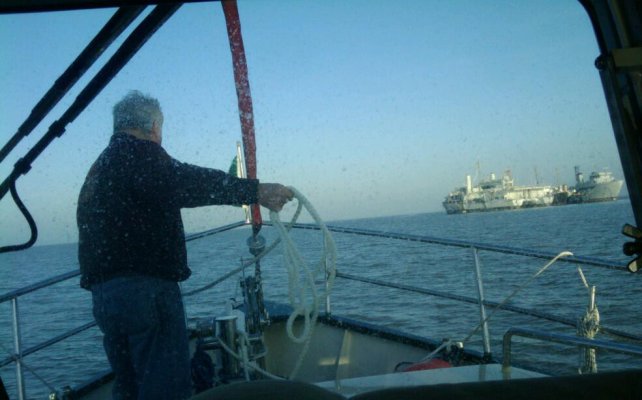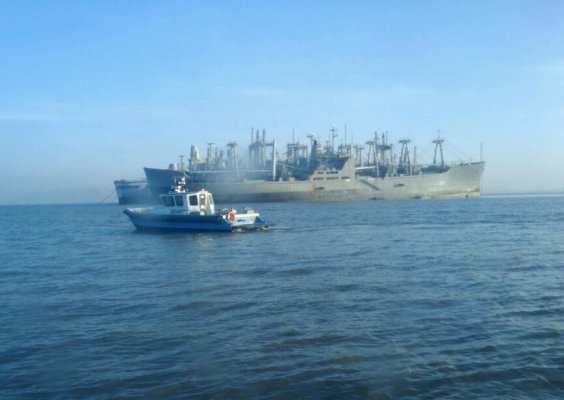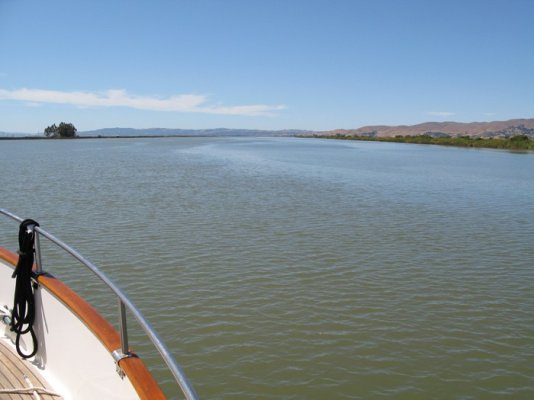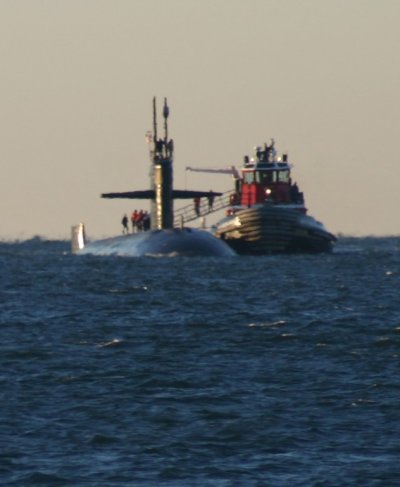markpierce
Master and Commander
- Joined
- Sep 25, 2010
- Messages
- 12,557
- Location
- USA
- Vessel Name
- Carquinez Coot
- Vessel Make
- penultimate Seahorse Marine Coot hull #6
Late Christmas-day afternoon we anchored over an eighth of a mile (per radar) from the closest ship in the Suisun Bay mothball/reserve fleet.* Signs say anchoring is prohibited within 500 feet of the ships.* Shortly after anchoring, security came and said we were anchored illegally.* Wasn't about to argue, so motored a mile or two away to anchor overnight.
The security boat makes the rounds every half hour.* Wonder if the personnel were bored.
The security boat makes the rounds every half hour.* Wonder if the personnel were bored.





